ICICI Bank 2014 Annual Report Download - page 5
Download and view the complete annual report
Please find page 5 of the 2014 ICICI Bank annual report below. You can navigate through the pages in the report by either clicking on the pages listed below, or by using the keyword search tool below to find specific information within the annual report.-
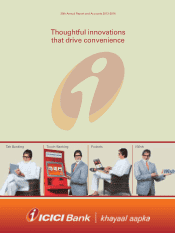 1
1 -
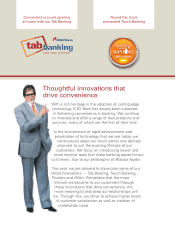 2
2 -
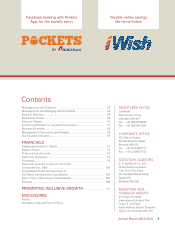 3
3 -
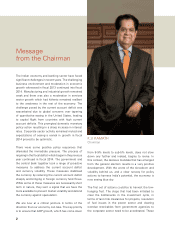 4
4 -
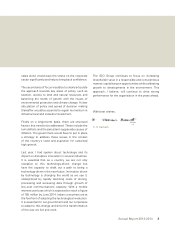 5
5 -
 6
6 -
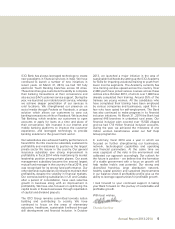 7
7 -
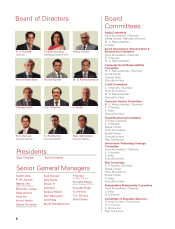 8
8 -
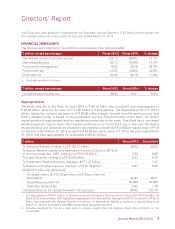 9
9 -
 10
10 -
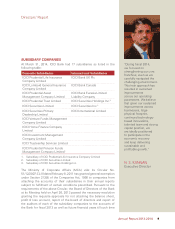 11
11 -
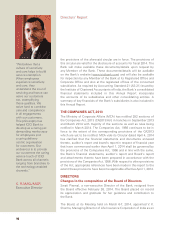 12
12 -
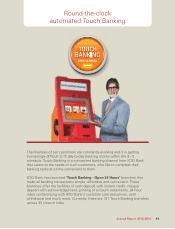 13
13 -
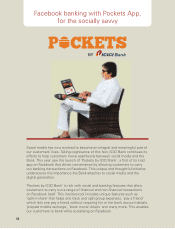 14
14 -
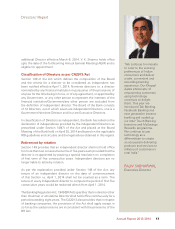 15
15 -
 16
16 -
 17
17 -
 18
18 -
 19
19 -
 20
20 -
 21
21 -
 22
22 -
 23
23 -
 24
24 -
 25
25 -
 26
26 -
 27
27 -
 28
28 -
 29
29 -
 30
30 -
 31
31 -
 32
32 -
 33
33 -
 34
34 -
 35
35 -
 36
36 -
 37
37 -
 38
38 -
 39
39 -
 40
40 -
 41
41 -
 42
42 -
 43
43 -
 44
44 -
 45
45 -
 46
46 -
 47
47 -
 48
48 -
 49
49 -
 50
50 -
 51
51 -
 52
52 -
 53
53 -
 54
54 -
 55
55 -
 56
56 -
 57
57 -
 58
58 -
 59
59 -
 60
60 -
 61
61 -
 62
62 -
 63
63 -
 64
64 -
 65
65 -
 66
66 -
 67
67 -
 68
68 -
 69
69 -
 70
70 -
 71
71 -
 72
72 -
 73
73 -
 74
74 -
 75
75 -
 76
76 -
 77
77 -
 78
78 -
 79
79 -
 80
80 -
 81
81 -
 82
82 -
 83
83 -
 84
84 -
 85
85 -
 86
86 -
 87
87 -
 88
88 -
 89
89 -
 90
90 -
 91
91 -
 92
92 -
 93
93 -
 94
94 -
 95
95 -
 96
96 -
 97
97 -
 98
98 -
 99
99 -
 100
100 -
 101
101 -
 102
102 -
 103
103 -
 104
104 -
 105
105 -
 106
106 -
 107
107 -
 108
108 -
 109
109 -
 110
110 -
 111
111 -
 112
112 -
 113
113 -
 114
114 -
 115
115 -
 116
116 -
 117
117 -
 118
118 -
 119
119 -
 120
120 -
 121
121 -
 122
122 -
 123
123 -
 124
124 -
 125
125 -
 126
126 -
 127
127 -
 128
128 -
 129
129 -
 130
130 -
 131
131 -
 132
132 -
 133
133 -
 134
134 -
 135
135 -
 136
136 -
 137
137 -
 138
138 -
 139
139 -
 140
140 -
 141
141 -
 142
142 -
 143
143 -
 144
144 -
 145
145 -
 146
146 -
 147
147 -
 148
148 -
 149
149 -
 150
150 -
 151
151 -
 152
152 -
 153
153 -
 154
154 -
 155
155 -
 156
156 -
 157
157 -
 158
158 -
 159
159 -
 160
160 -
 161
161 -
 162
162 -
 163
163 -
 164
164 -
 165
165 -
 166
166 -
 167
167 -
 168
168 -
 169
169 -
 170
170 -
 171
171 -
 172
172 -
 173
173 -
 174
174 -
 175
175 -
 176
176 -
 177
177 -
 178
178 -
 179
179 -
 180
180 -
 181
181 -
 182
182 -
 183
183 -
 184
184 -
 185
185 -
 186
186 -
 187
187 -
 188
188 -
 189
189 -
 190
190 -
 191
191 -
 192
192 -
 193
193 -
 194
194 -
 195
195 -
 196
196
 |
 |

steps alone would ease the stress on the corporate
sector significantly and help to bring back confidence.
The second area of focus would be to clearly articulate
the approach towards key areas of policy, such as
taxation, access to land and natural resources and
balancing the needs of growth with the issues of
environmental protection and climate change. A clear
articulation of policy and speed of decision making
thereafter would be essential to regain momentum in
infrastructural and industrial investment.
Finally on a longer-term basis, there are structural
factors that need to be addressed. These include the
twin deficits and the persistent supply-side causes of
inflation. The government would have to put in place
a strategy to address these issues in the context
of the country’s need and aspiration for sustained
high growth.
Last year, I had spoken about technology and its
impact on disruptive innovation in several industries.
It is essential that as a country, we are not only
receptive to this technology-driven change but
have the capacity to chalk out a path to being a
technology-driver in the near future. Innovation driven
by technology is changing the world as we see it,
underpinned by rapidly declining costs of storing,
processing and accessing data through growth of
low-cost communications capacity. With a mobile
internet user base which is expected to reach a figure
of 185 million by June 2014, Indian consumers are at
the forefront of adopting the technological revolution.
It is essential for our government and our corporates
to adapt to this change and drive this transformation
of the way we live and work.
The ICICI Group continues to focus on increasing
shareholder value in a responsible and conscientious
manner, capitalising on opportunities while calibrating
growth to developments in the environment. This
approach, I believe, will continue to drive strong
performance for the organisation in the years ahead.
With best wishes,
K. V. Kamath
Annual Report 2013-2014 3
